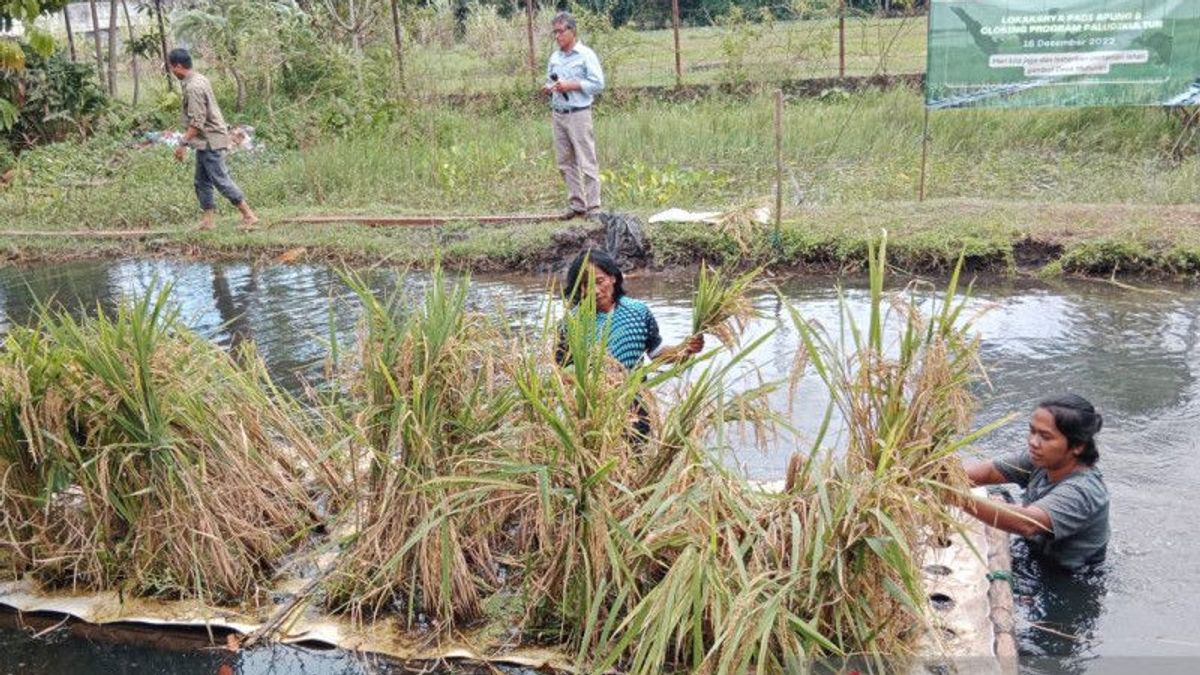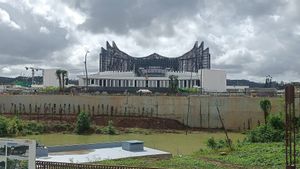JAKARTA - The University of Muhammadiyah Yogyakarta (UMY) is developing floating rice technology as a solution to deal with the threat of shrinking the potential agricultural land area in the country.
"We have lost a lot of fertile land on the island of Java of around 1,400 hectares per year so we have to look for other alternative land," said UMY Chancellor Prof Gunawan Budiyanto after the Panen with the Demplot of Apung Technology Padi event at the Green House, Faculty of Agriculture, UMY, Bantul, Antara, Wednesday, January 4.
By developing a floating rice farming system, said Gunawan, UMY seeks to support national food security because it can be developed in marginal or unfertilized lands, swamps, and lands that are prone to flooding.
He said the floating rice technology developed by researchers from the UMY Agrotechnology Study Program had been implemented in Muhuran Village, Kota Bangun District, Kutai Kartanegara and Minta Village, West Kutai, East Kalimantan since November 2021.
The area has a stretch of peat swampland which is often inundated by water from the Mahakam river.
"One of the characteristics of peatlands in general, their condition is always inundated by tides or rivers. So that if we plant rice in the usual way before harvesting, it will be submerged in water," he said.
By utilizing local resources, Gunawan hopes that local people in East Kalimantan can adopt this technology so that rice productivity in the region can be sustainable.
"The technology we develop is 100 percent using local resources. This is also a distinct advantage for the sustainability of the technology," he said.
Expert Staff of the UMY Agriculture Faculty, Mulyono, said that the floating rice technology applied in East Kalimantan has been harvested twice with yields reaching 4 tons to 5 tons per hectare with IR64 rice varieties.
To develop the floating technology, he said, bamboo is needed which is then assembled to lay the planting media.
The planting media developed in East Kalimantan, said Mulyono, were in the form of sawdust, walett droppings, and kimbang grass that were deposited and then placed in pots or plastic glasses.
Each pot is then filled with rice seeds that are 10 days old.
"Initially the cost was indeed higher but in the future only the capital for seeds," he said.
Chairman of the UMY Community Service Institute Gatot Supangkat said the agricultural sector is very vulnerable to climate change, especially the rain intensity factor that affects planting patterns, planting time, production, and yield quality.
Meanwhile, high and uncertain intensity of rain causes the condition of agricultural land to experience flooding or stagnant water.
"Therefore, an innovation technology is needed related to agricultural systems. One of the technological innovations for cultivation in flood-prone areas and swamps is by implementing a floating farming system that UMY develops," said Gatot.
The English, Chinese, Japanese, Arabic, and French versions are automatically generated by the AI. So there may still be inaccuracies in translating, please always see Indonesian as our main language. (system supported by DigitalSiber.id)
Tags les plus populaires
#Prabowo Subianto #Nouvel An #pdip #Hasto Kristiyanto #nataru #NatalPopulaire
27 Desember 2024, 08:13











